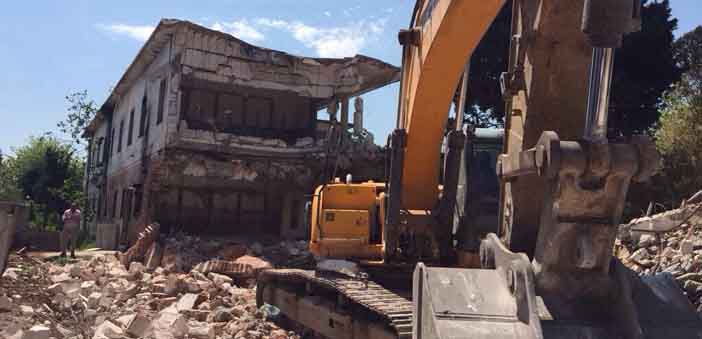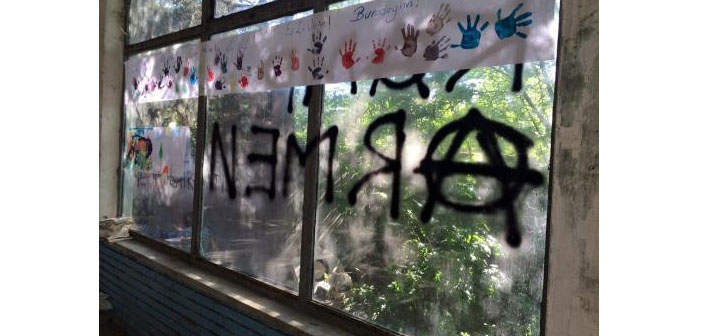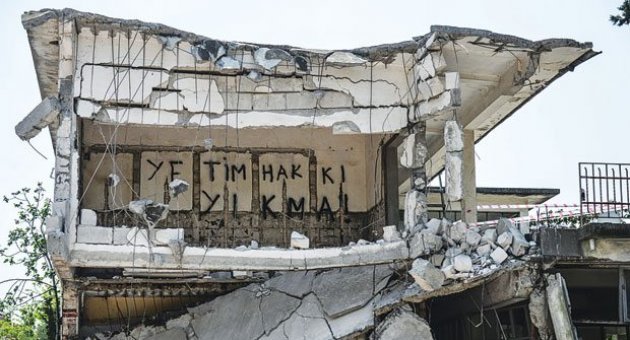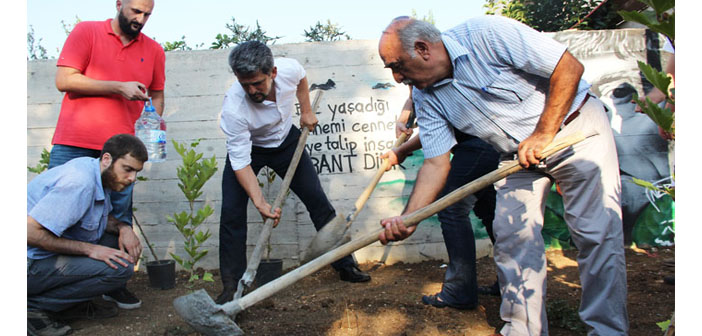Demolition that began in the early hours of the day at Tuzla Children’s Camp, also known as Kamp Armen, was stopped with the intervention of activists, members of the public and politicians that gathered at the site. The waiting continues.
Heavy demolition equipment belonging to a private company entered the Tuzla Camp around 10 AM, and began demolishing the buildings.
The camp is among the most symbolically significant of Armenian community properties unlawfully seized by the State. The camp had become a home for impoverished Armenian children who in the aftermath of 1915, were forced to come to Istanbul since Anatolia had been left devoid of Armenian schools. The school was once home to around 1500 children including Hrant Dink, Rakel Dink and Member of Parliament Erol Dora.
The camp had been in a derelict state recently, and faced the threat of demolition.
In last week’s headline, Agos used the hashtag #StopDemolitionOfKampArmen with a report on the story of the camp, and the legal struggle to secure its return to the foundation, and stop its demolition.
Uygar Gültekin, from Agos, reported that the 5 rooms where the children stayed, the room of Hrant Güzelyan, the legendary director of the camp, the chapel and the peripheral walls were demolished.
When the news of the demolition spread, a group of people gathered at the camp and succeeded in stopping the demolition.
HDP parliamentary candidates Garo Paylan, Sezin Uçar and Beste Kaplan, HDP provincial administrators, CHP Tuzla Province President Ali Çelik, Nor Zartonk activists, and former camp member Garabet Orunöz are among those gathered at the site.
Although the demolition has been thwarted for now, it is unclear what the next step will be.
How did the State seize the camp?
The land of the camp, purchased by the Gedikpaşa Armenian Protestant Church Foundation, was returned - along with the facilities constructed on the site with the efforts of the children who studied there - by the State to its first owner on the basis of the 1936 Declaration, and the seizure process of the camp was completed when the Court of Cassation approved the decree of the local court in 1987.
The foundation administration tried all legal means for the return of the camp, however the efforts remained fruitless. Even the cases filed for compensation for the facilities built on the land were inconsequential.
When in 2011, a change in the Law on Foundations triggered a process for the return of seized foundation properties; an application was made to the Foundations General Directorate for the Tuzla Children’s Camp as well. However, the Foundations General Directorate, on the basis of the legal annulment of the sale of the Tuzla Camp, did not treat the file as a ‘seized property’ file, and thus the return of the camp or the payment of compensation did not take place. The demolition of the camp, which begun today, was scheduled to begin within the month of May.





